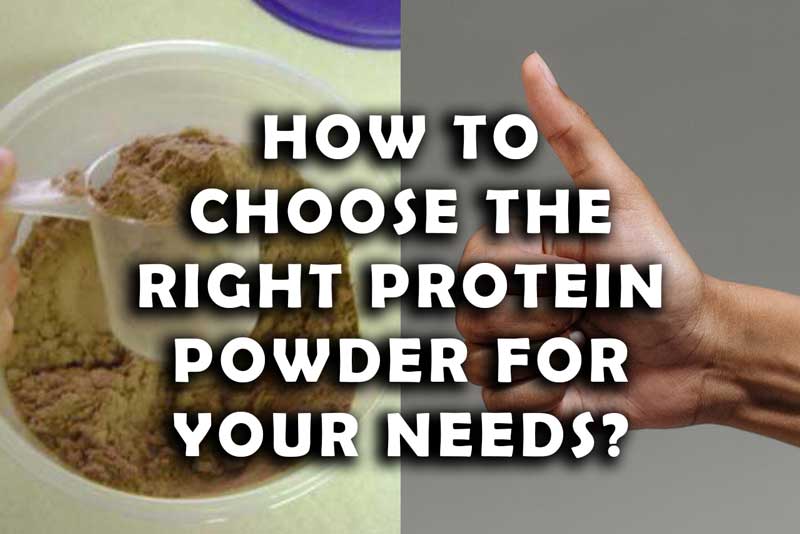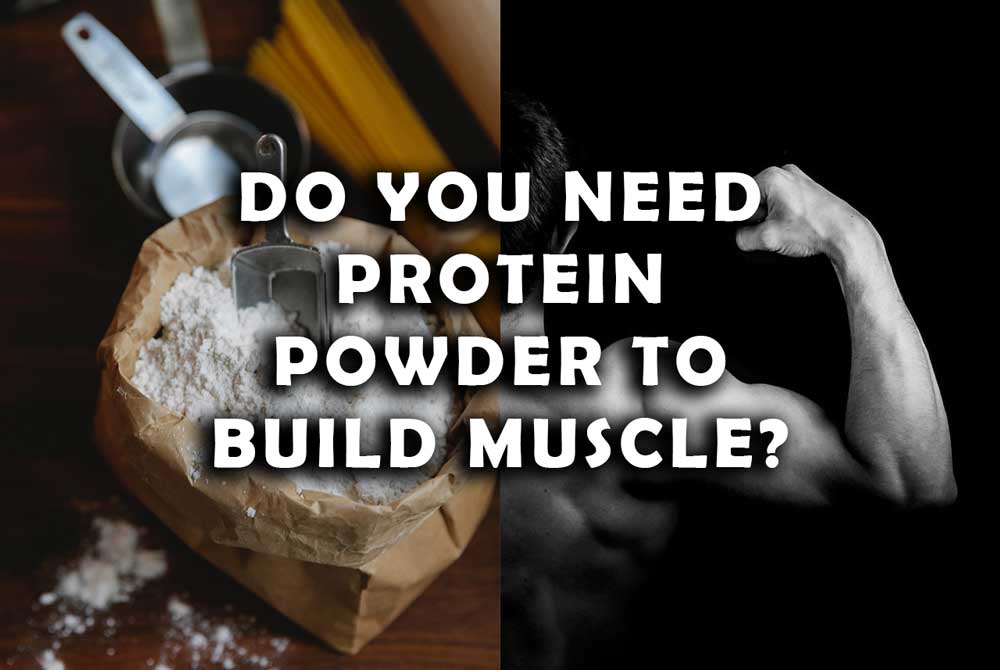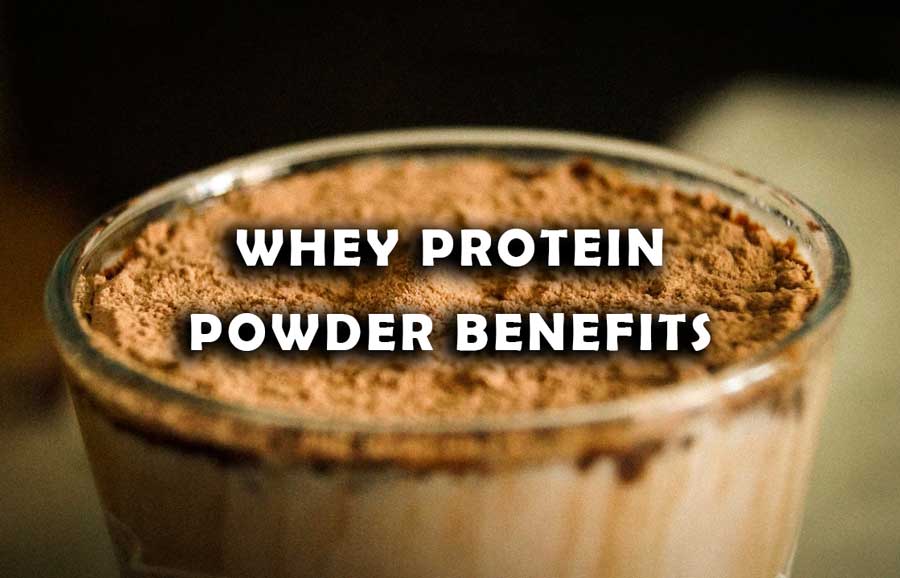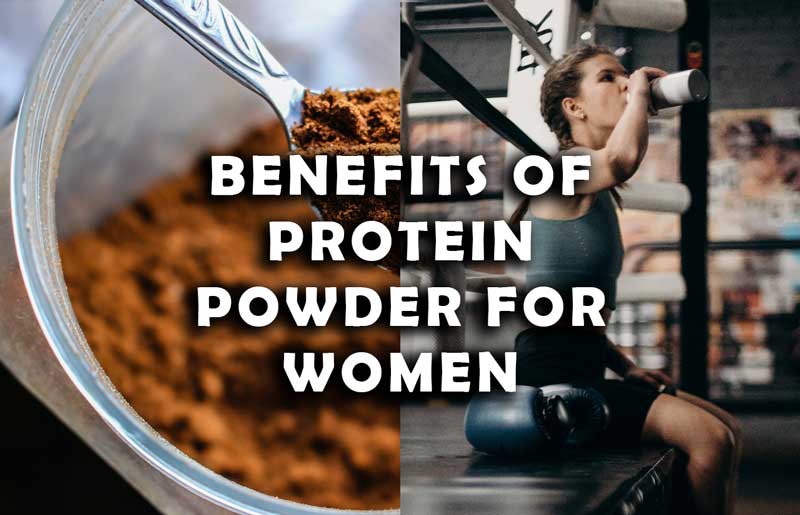Protein powder is a popular supplement among fitness enthusiasts and athletes. It’s an easy and convenient way to increase protein intake. Protein in protein powder helps build muscle, aid in recovery, and promote overall health. However, with so many different types of protein powders available, it can be challenging to choose the right protein powder for your needs.
In this article, we’ll explore the factors you should consider when choosing a protein powder, and provide some tips to help you make an informed decision.
Why is Protein Important?
Protein is an essential macronutrient that plays many important roles in the body. It’s involved in building and repairing tissues and muscles, producing enzymes and hormones, and supporting the immune system. Additionally, protein is necessary for muscle growth and recovery, making it a crucial nutrient for athletes and fitness enthusiasts.
Factors to Consider to Choose the Right Protein Powder
When selecting a protein powder, there are several factors to consider, including your fitness goals, allergies and sensitivities, taste and texture preferences, price, and quality and purity. Let’s take a closer look at each of these factors.
1) Your Fitness Goals
Your fitness goals should play a significant role in determining which protein powder is best for you. If you’re looking to build muscle mass, a protein powder with a high biological value and a complete amino acid profile, such as whey protein, may be the best choice. If you’re looking to lose weight, a protein powder with a lower calorie count and higher fiber content, such as rice or pea protein, may be a better option.
2) Allergies and Sensitivities
If you have food allergies or sensitivities, it’s important to choose a protein powder that is free from any potential allergens. For example, if you have a dairy allergy, whey or casein protein may not be the best choice for you. Similarly, if you have a soy allergy, soy protein may not be a suitable option.
Some people get whey protien acne after consuming whey protein. Look out for such allergies.
3) Taste and Texture
Protein powders can have a wide range of tastes and textures, so it’s important to choose one that you enjoy. Some protein powders can be gritty or chalky, while others may have a smoother texture. Additionally, some protein powders may have added flavours or sweeteners that can affect the taste. Try a few different options to see which one you prefer.
4) Price
Protein powders can vary widely in price, depending on the brand and quality. While it’s important to choose a high-quality protein powder, it’s also important to consider your budget. Compare prices and choose a protein powder that fits within your budget.
5) Quality and Purity
When selecting a protein powder, it’s essential to choose one that is high-quality and pure. Look for a protein powder that has undergone third-party testing to ensure it’s free from contaminants and accurately labelled. Additionally, choose a protein powder that is made from high-quality ingredients and has a transparent ingredient list.
How to Choose the Right Protein Powder for You
Now that you understand the different types of protein powders and factors to consider when selecting one, it’s time to choose the right protein powder for your needs. Here are some tips to help you make an informed decision:
- Consider your fitness goals and choose a protein powder that supports those goals.
- Check the label for any potential allergens or ingredients you want to avoid.
- Try a few different options to see which one you prefer in terms of taste and texture.
- Compare prices and choose a protein powder that fits within your budget.
- Look for a protein powder that is high-quality, pure, and has undergone third-party testing.
Different Types of Protein Powders
There are many different types of protein powders available, each with its own unique set of benefits and drawbacks. Here are some of the most popular types of protein powders and what you should know about each one:
1) Whey Protein Powder (Right for most)
Whey protein is one of the most popular types of protein powders. It is a by-product of milk and is a complete protein, meaning it contains all nine essential amino acids. Whey protein is quickly absorbed by the body, making it an excellent choice for post-workout recovery.
2) Casein Protein Powder (Right for slow digestion)
Casein protein is another type of protein powder which is a by-product of milk. It’s a slower-digesting protein than whey, which means it provides a more sustained release of amino acids into the bloodstream. This makes it a good option for a pre-bedtime snack or a meal replacement.
3) Soy Protein Powder
Soy protein is a plant-based protein derived from soybeans. It’s a complete protein and is a good option for vegetarians or those with dairy allergies. Soy protein may also have some additional health benefits, such as reducing cholesterol levels and improving heart health.
4) Pea Protein Powder (Right and best for Vegans)
Pea protein is a plant-based protein derived from yellow split peas. It’s a good option for vegans or those with allergies to soy or dairy. Pea protein is also rich in essential amino acids, making it a good choice for muscle growth and recovery.
5) Hemp Protein Powder
Hemp protein is a plant-based protein derived from hemp seeds. It’s a good source of essential fatty acids and is rich in fiber, making it a good option for digestive health. However, it’s not a complete protein and may be lower in some essential amino acids than other protein powders.
6) Rice Protein Powder
Rice protein is a plant-based protein derived from brown rice. It’s hypoallergenic and easily digestible, making it a good option for those with food sensitivities. Rice protein is also low in fat and carbohydrates, making it a good choice for weight loss.
7) Egg Protein Powder (Right for Egg lovers)
Egg protein powder is made from egg whites that have been dried and powdered. It’s a great source of high-quality protein, as egg whites contain all nine essential amino acids. Egg protein powder is also low in fat and carbohydrates, making it a good option for those who are watching their calorie intake.
Common Protein Powder Myths
There are several common myths surrounding protein powders that can be misleading. Here are a few of the most common myths:
- Myth #1: Protein powders are only for bodybuilders.
- Myth #2: Protein powders will make you bulk up quickly.
- Myth #3: You need to consume protein powder immediately after a workout.
- Myth #4: Plant-based protein powders are not as effective as animal-based protein powders.
In reality, protein powders can be beneficial for anyone looking to increase their protein intake, and also it can support a wide range of fitness goals. Additionally, plant-based protein powders can be just as effective as animal-based protein powders.
Conclusion
Choosing the right protein powder can be a daunting task, but by considering your fitness goals, allergies and sensitivities, taste and texture preferences, price, and quality and purity, you can make an informed decision. Remember to choose a protein powder that supports your fitness goals, is free from potential allergens, has a taste and texture you enjoy, fits within your budget, and is high-quality and pure.
It’s also important to be aware of common myths surrounding protein powders, such as the idea that they’re only for bodybuilders or that plant-based protein powders are less effective. By dispelling these myths and understanding the true benefits of protein powders, you can make the most of this valuable supplement.
Incorporating protein powder into your diet can be a great way to support your fitness goals and improve your overall health and wellness. By following the tips outlined in this article, you can choose the best protein powder for your needs and enjoy all the benefits it has to offer.
FAQs
- This can vary depending on your fitness goals and individual needs. You can consume 0.8-1 gram of protein per pound of bodyweight per day, and you can adjust your protein powder intake accordingly.
- Can protein powders cause bloating or digestive issues?
- Some people may experience bloating or digestive issues when consuming protein powders, especially if they have sensitivities or allergies. It’s important to choose a protein powder that agrees with your digestive system and start with a small serving size to gauge your body’s reaction.
- Are plant-based protein powders as effective as animal-based protein powders?
- Yes, plant-based protein powders can be just as effective as animal-based protein powders, as long as they contain a complete amino acid profile and are of high quality.
- Can protein powders help with weight loss?
- Yes, protein powders can help with weight loss by increasing satiety and supporting muscle mass, which can boost metabolism and calorie burning.
- What’s the best time to consume protein powder?
- There’s no one-size-fits-all answer to this question, as it can depend on your individual needs and preferences. Some people prefer to consume protein powder before or after a workout, while others may choose to incorporate it into meals throughout the day. The most important thing is to ensure you’re consuming enough protein to support your fitness goals and overall health.





